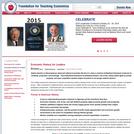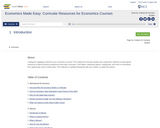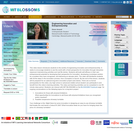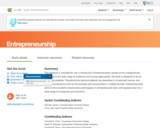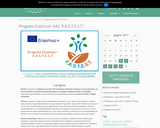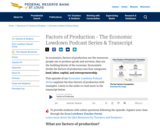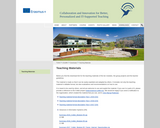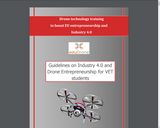Erasmus+ Strategic Partnership project called "Food & Agroindustrial Schools Toward Entrepreneurship by Storytelling & digital Technology" (Project No. 2015-1-IT01-KA202-004608), about developing entrepreneurship in VET agrifood students through digital storytelling techniques
Aim of the project is to develop in VET teachers functional skills to integrate systematically in the curricula entrepreneurship education to develop active citizenship and employability, supporting person-centered and experiential learning, through the creation of OER of “Digital storytelling “.
Context: the project aims to involve multi-disciplinary teams of teachers, as “agents of change”, and students, as a new generation of potential entrepreneurs but also as workers with an “entrepreneurial approach”, of VET schools of secondary level of IT, PT, RO and BG, similar among themselves because of the lack of a systematic training-for-trainers in relation to entrepreneurship, with consequences of absence of entrepreneurship as a field of learning in the regular curricula. The focus is on schools and companies related to the agro-industrial sector, in all countries, that needs an injection of new businesses to emerge from a state of heightened shortage of skilled professionals and young people in working cohorts.
Activities and methodology: creation of 1) action-research that prefigures: terms of educational value of storytelling for the development of an entrepreneurial mind-set; didactical sustainability of practices of digital manipulation in the development of educational programs for the development of entrepreneurial skills; new skills required by teachers for the effective use of the methodology to support the acquisition of entrepreneurial skills; 2) multilingual hypervideos (pupil-led experimentations); 3) Training Programmes for the blended use of hypervideos revised by teachers (teacher-led experimentations); 4) Methodological guidelines for the effective use of digital storytelling for learning entrepreneurial skills in school context – systematization of experimentations for their release as OERs.
Number and profile of participants: they will be directly involved in the project activities: 12 teachers/school principals – in interdisciplinary teams and transnational learning/teaching/training activities; 12 ICT experts and 16 representatives of business sector for O1; 40 teachers in 8 focus groups for O1; min. 8 entrepreneurs of FDMP sector for O2; 160 students for O2 and other 160 students for O3; at least 160 “local participants” in the 4 multiplier events.
In terms of expected results, the use of hypervideos as OERs will allow direct knowledge of the related production chain; their creation will enable a “learning by doing”, with a direct experience of the entrepreneurial skills necessary for the realization of a complex project (experimental meta-learning). It is expected an increase of the dialogue between schools and businesses, able to prevent, in the long term, any gap in the professional knowledge necessary to the efforts of innovation required in an evolving industrial sector.
Impacts for VET: spread / enhance different learning styles (innovative teaching); expand the provision of curricular training; increase motivation among the “digital generation”; open to contributions from experts in the business sector; create a more fluid and productive dialogue between formal and informal knowledge – take informal knowledge and transform it into digital resources. Benefits: the VET system will increase its attractiveness, expand its training offer and modernize its teaching approaches, reduce cases of ESL, qualify its staff members (refer to either digital and entrepreneurial skills), root further in the territory by consolidating relations with the socio-economic context.
Impacts for learners: increase of entrepreneurial skills applied in life and school paths; increase of motivation for further education; stimulus to entrepreneurship as a realistic professional opportunity after school; increase of digital skills through the “generative” choice to produce Learning Objects (benefits: spread of technical-scientific culture and reducing of digital divide).
Impacts for business/FDMP sector: connecting with local educational institutions and new generations of workers (role of “virtual business angel”); reflection on entrepreneurial mind-set skills on a personal and a corporate level; study of the potential of digital storytelling to tell / sell a company, for information, marketing or training purposes. Benefits: increased level of entrepreneurship / entrepreneurial spirit in FDMP.
Please download all the Intellectual Outputs from
http://www.cisita.parma.it/cisita/progetti-internazionali/progetto-erasmus-ka2-fastest/
www.fastesteu.com
Intellectual Output 1: Research Action about the current state of exploitation of storytelling and digital storytelling for didactic purposes in the participating EU countries (Italy, Bulgaria, Romania, Portugal)
Intellectual Output 2: Creation of 8 hypervideos about stories of success and interviews to local entrepreneurs from the agroindustrial sector (Tomato industry, cheese industry, meat industry, bakery industry, wine industry). Videos are made by made by students at school with teachers' supervision and guidance about gaining knowledge and meaning out of the experience. Videos are then turned into hypervideos by students themselves, adding further hypermedia contents from the web about entrepreneurship and /or sector-related information
Intellectual Output 3: Exploitation and testing of the hypervideos as didactic and teaching tools on students who did not take part in the video-making experience. Elaboration of 4 teaching programs (one for each of the 4 participating countries Italy, Bulgaria, Romania and Portugal) about entrepreneurship using hypervideos to create a blended learning experience
Intellectual Output 4: Methodological guidelines for future users or makers of new hypervideos. How to use the project's Output for educational purposes and how to make brand new hypervides from scratch. Technical guide about how to deal with a videomaking & editing process.

